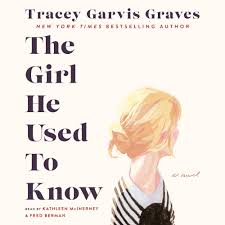By Tracey Garvis Graves
Reviewed by Beth Fehan
People are like snowflakes. Each one is beautiful and no two are alike. People are not like snowflakes. We have a tendency to judge each other for these differences.
Although no one would deny that no two people are the same it does not stop us from judging people who do not fall into what we as a society think of as “the norm.”
We say we celebrate differences, however, there are many individuals with developmental disorders who, at times, do not feel so celebrated. Those who navigate the world a little differently and judged for it. Considered “weird.”
In The Girl He Used to Know by Tracey Garvis Graves we meet such a girl. Annika has trouble understanding what people mean, misses social cues and cannot handle loud noise. She often says she feels like people are born with an instruction book, but somehow she was never given a copy.
Homeschooling began halfway through seventh grade after Annika was beaten and locked in a school bathroom by fellow seventh grade girls. Annika’s mother then makes the hard decision to allow her to go off to college three hours away. She learns to navigate college in her own way with the help of her college roommate, Janice. Janice is the only person on campus who takes the time to truly get to know the shy, quirky and strikingly beautiful Annika.
During Annika’s senior year she meets Jonathan. This is their story. It is a beautiful account of love, loss and acceptance. About learning how to trust people in a dangerous world even when you have been hurt by others in the past. About learning how to give and how to receive. It is a lesson on learning to speak someone else’s language and having the patience and understanding to articulate your own.
We are all broken people.We all have “stuff.” This story contains a lesson for all of us. To look humbly at ourselves and who we are before looking at and judging someone else.
As the mother of a child born with Down syndrome I get a front row seat on how our society views individuals who do not fall into the “typical” category. I listen while I’m told that his needs will be better met in a “separate” environment. You know what? The world is not “separate”. It belongs to all of us. Some differences are more visible than others, but we are all wonderfully made. We all desire to be known and to be loved. I know first hand that when you dismiss someone due to their “differences” it is most likely you who will be the one missing out. Don’t forget to read … The Fine Print.
